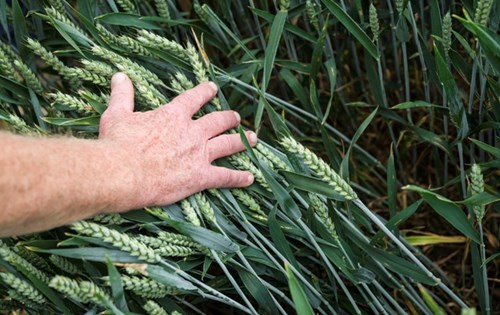Integrated Pest Management (IPM) Plans

Within the programmed delivery of the Whole Farm Plan portfolio over the next three years, for 2025, farmers and crofters are required to complete two baselining activities from the list of five, these being; carbon audits, biodiversity audits, soil analysis’s, the creation of animal health and welfare plans and/or integrated pest management plans.
Some farmers that apply plant protection products will be opting to include an Integrated Pest Management Plan (IPM) plan this year as one of the two baselining activities and under the obligations to receive single farm payments, completing an IPM plan and reviewing it annually, will be a requirement of all farmers using plant protection products by 2028. IPM plans help ensure that opportunities to improve productivity are not missed and help meet the market demand to see more sustainable practices and reduced reliance on pesticides. It is also already a feature for compliance with farm assurance schemes.
IPM is a whole farm approach to pest management that maximises productivity whilst minimising negative impacts on the environment. Individual businesses can take many different but totally appropriate approaches to adopting IPM practices
For the last couple of years there has been a refreshed IPM plan for use by Scottish businesses. Numbers completing the previous Scottish IPM Plan totalled nearly 3,000 businesses, and the new plan improves on the previous version by allowing the industry’s progress in adopting IPM to be measured. The new plan uses a metric for measuring IPM adoption that was derived with stakeholder input (farmers, researchers, regulators, merchants). The metric developed assigns weightings to the different pest management options and scores farms on a 0-100 scale for IPM adoption. It can be used annually to baseline your farm and then track improvements. The need to evaluate IPM measures adopted on farm regularly is a key aspect of IPM.
The revised plan, now entitled the Scottish IPM Assessment Plan, allows the increasing uptake of IPM by the sector to be demonstrated to the industry’s customers and to Government and its agencies. It will also let the Scottish Plant Health Centre of Expertise target knowledge exchange strategies to the areas of most impact for farming businesses. The Scottish IPM assessment plan does not collect data relating to farm assurance schemes, farm support payments, cross compliance activities or agri-environment schemes.
IPM plans are available for arable crops, grassland, and horticultural crops at the Plant Health Centre and essentially all IPM plans incorporate six key measures for consideration:
- Cultural controls e.g. crop rotation and variety selection
- Targeted chemical controls
- Physical and mechanical controls e.g. cultivations and mulches
- Protection and promotion of beneficials
- Forecasting and monitoring and thresholds
- Biological controls
Scotland's Farm Advisory Service (FAS) also provides a good resource of further information including videos and podcasts.
BASIS and NRoSO members can claim CPD points on completion of the plan.
Mark Bowsher-Gibbs, Principal Consultant, mark.bowsher-gibbs@sac.co.uk

Unearthed is the exclusive SAC Consulting members' monthly newsletter. Unearthed offers insights and tips from our experts on what we think is in store for farming and crofting in the coming months in order to protect and enhance your business.
Posted by Unearthed News on 15/04/2025
